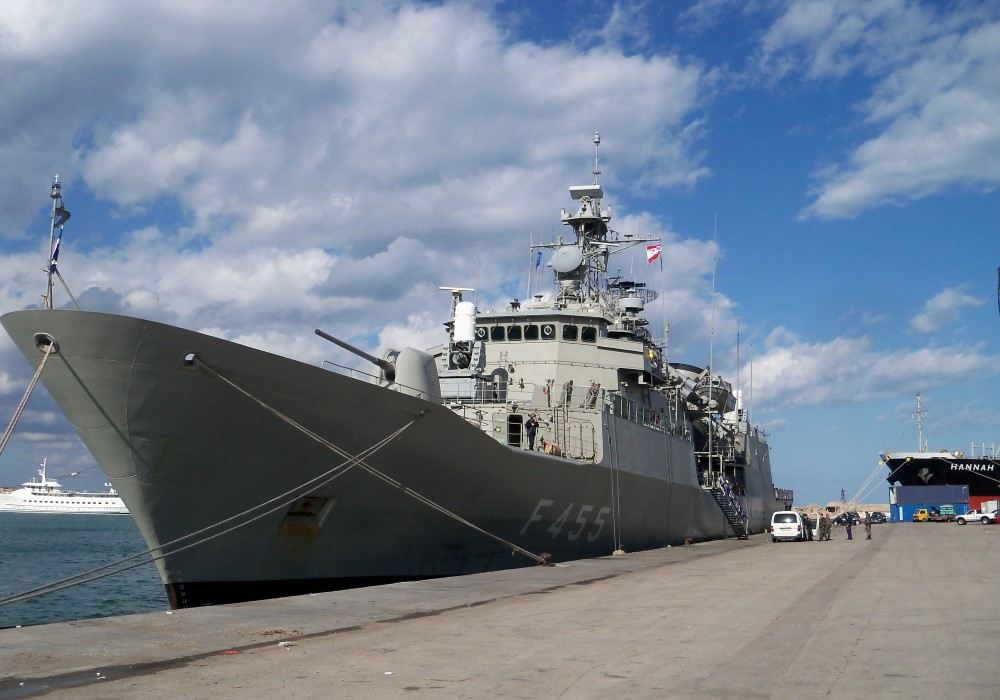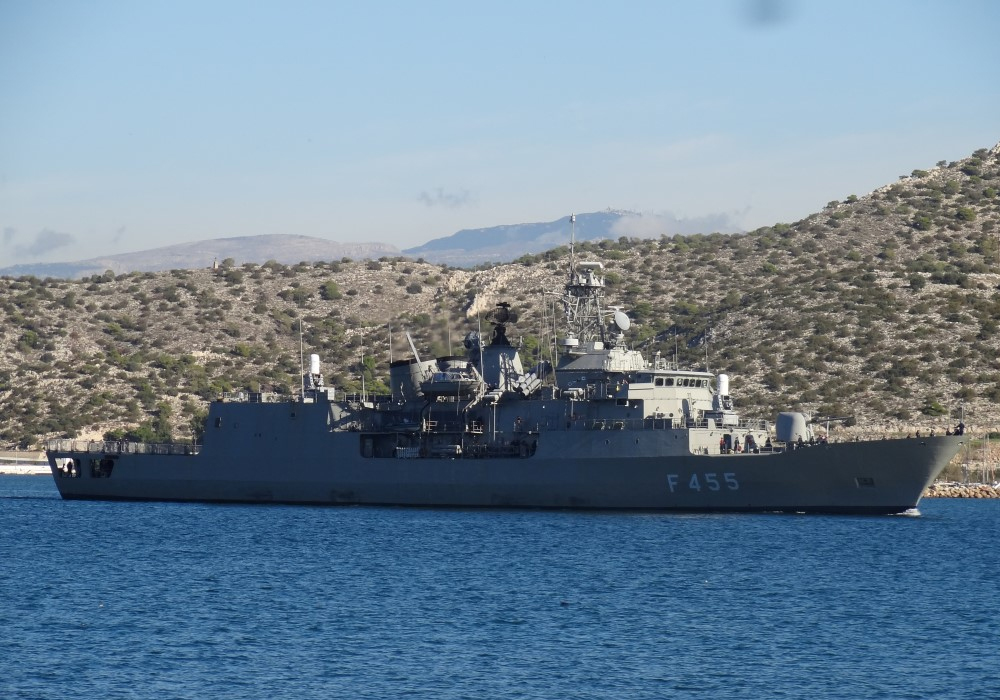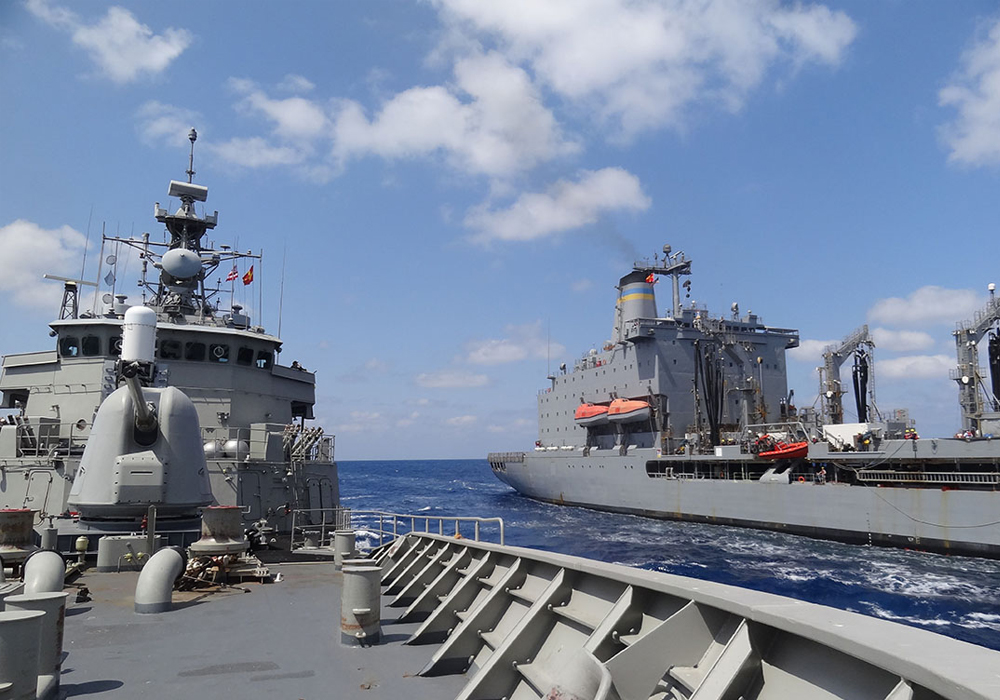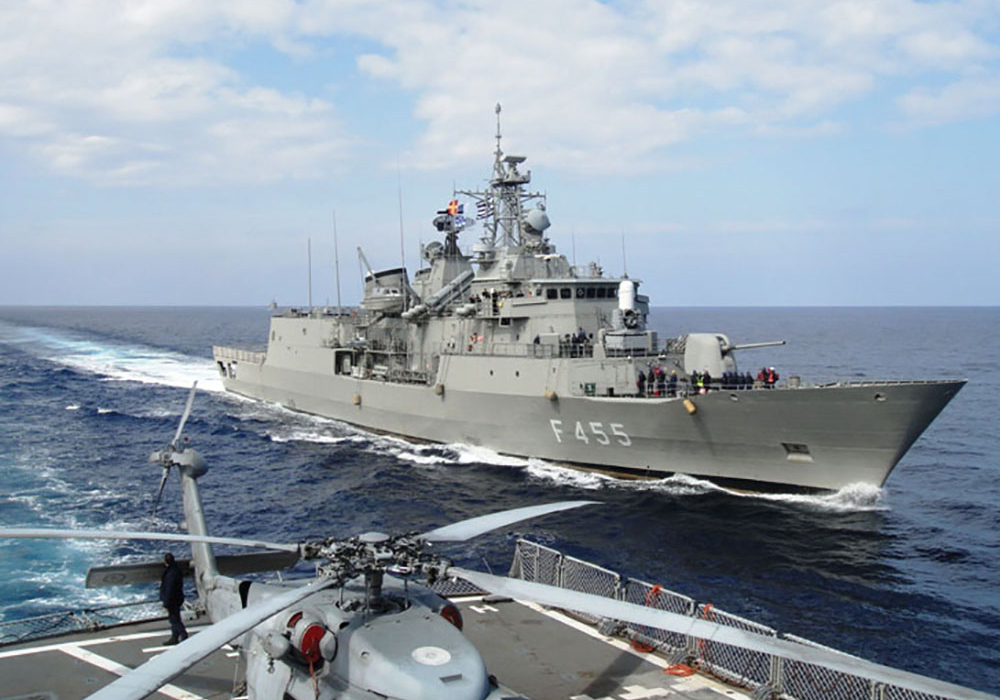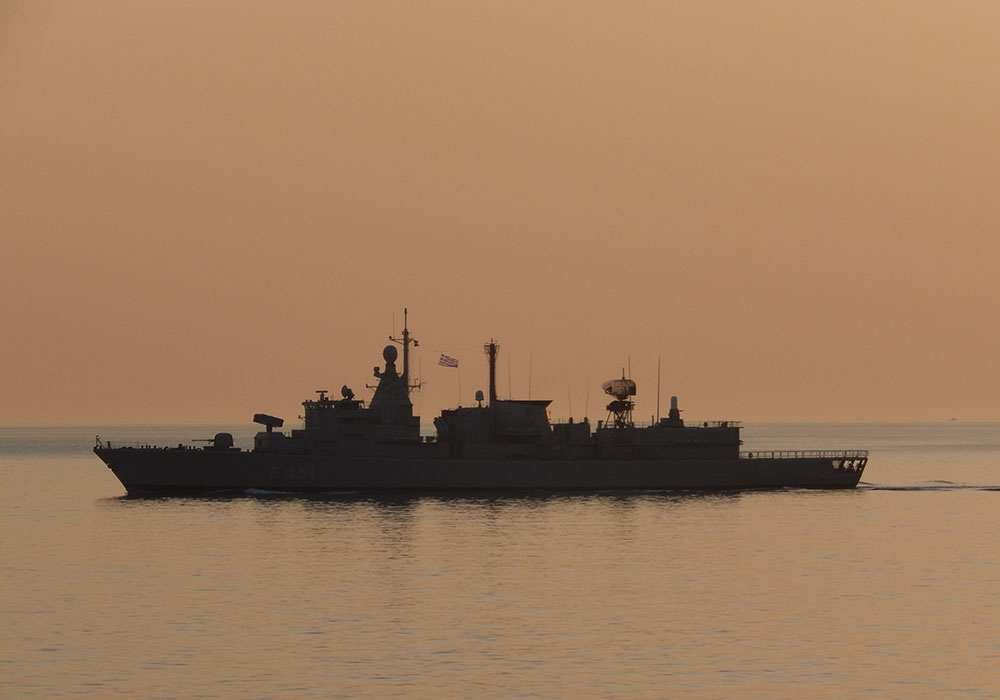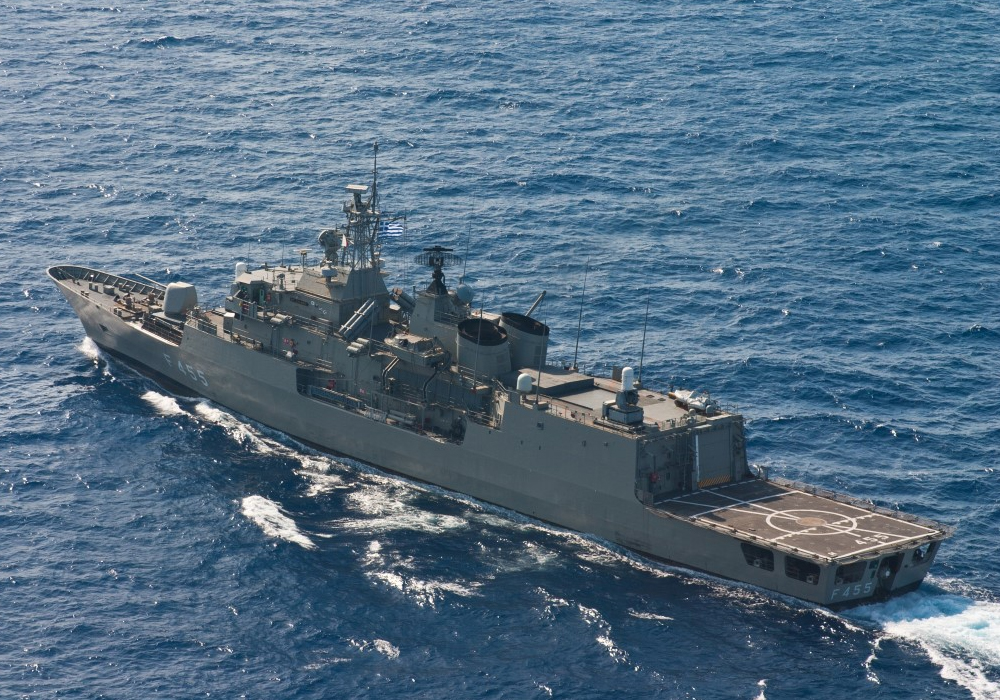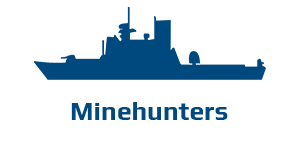HS SALAMIS (F 455)
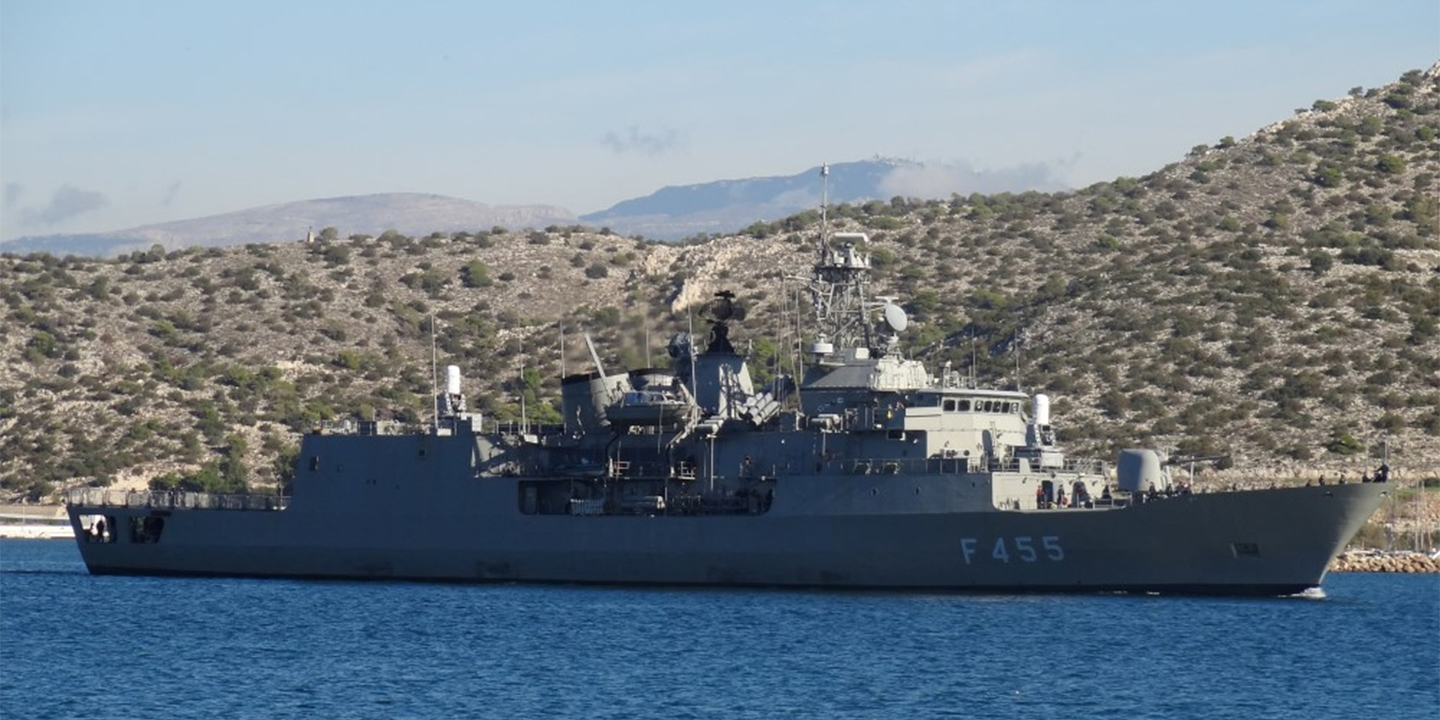
Crest
The crest of HS SALAMIS, originating from an older homonymous ship, depicts an Athenian trireme on waves, with a ram on her bow and two spears. This symbolic representation refers to the naval battle that took place at the straits of Salamis island in 480 B.C.. The description of the crest, «The foremost principle of victory is courage», holds a central meaning of Plutarch’s assessment for the tactics which Themistocles followed during the naval battle.
Technical Characteristics
History
Apart from the continuous and successful participation in the operational training exercises of the Hellenic Navy since her commissioning HS SALAMIS has taken part in various international missions. Suggestively, such missions are «FOCOPS 21-2» (March – April ‘21), «UNIFIL MAROPS» (July – August ‘21), «MEDUSA 11» (November ‘21), «EUNOMIA 3-22» (October ‘22).
HS SALAMIS is the second ship of the Hellenic Navy bearing that name. Initially, the name was about to be given to an under construction 19.000-ton Dreadnought type battleship that had been ordered in 1912 at the German shipyards of Vulcan. However, that ship was never delivered to the Hellenic Navy since the German shipyards interrupted her construction in December 1914 due to the outbreak of World War I. The first ship that finally received the name «SALAMIS» was a 1.963-ton fleet destroyer of maximum speed of 35 knots (29 knots under Hellenic command due to its aged boilers) that was granted on lend to the Hellenic Navy by the British Navy during World War II (former HMS BOREAS, built in 1929-1931). That ship was handed over to the Hellenic Navy in Liverpool on the 9th of February 1944 and remained under Hellenic Fleet command until September 22nd 1951. She was then towed to Malta and was returned to the British navy on October 31st 1951.
The name «SALAMIS» was given to the ship in honor of the homonymous Hellenic island whose name has been linked for the past 2.500 years, in the Hellenic, European and international conscience, with one of the bigger in extent and consequences naval battle of all times that took place in the island’s waters in 480 B.C.. In this, substantially first, encounter between the East and West world, the united fleet of the Hellenic cities, including the Athenian triremes under the command of Themistocles, faced and defeated the invading Persian fleet under the command of Xerxes, even though Hellenic ships were significantly outnumbered .

